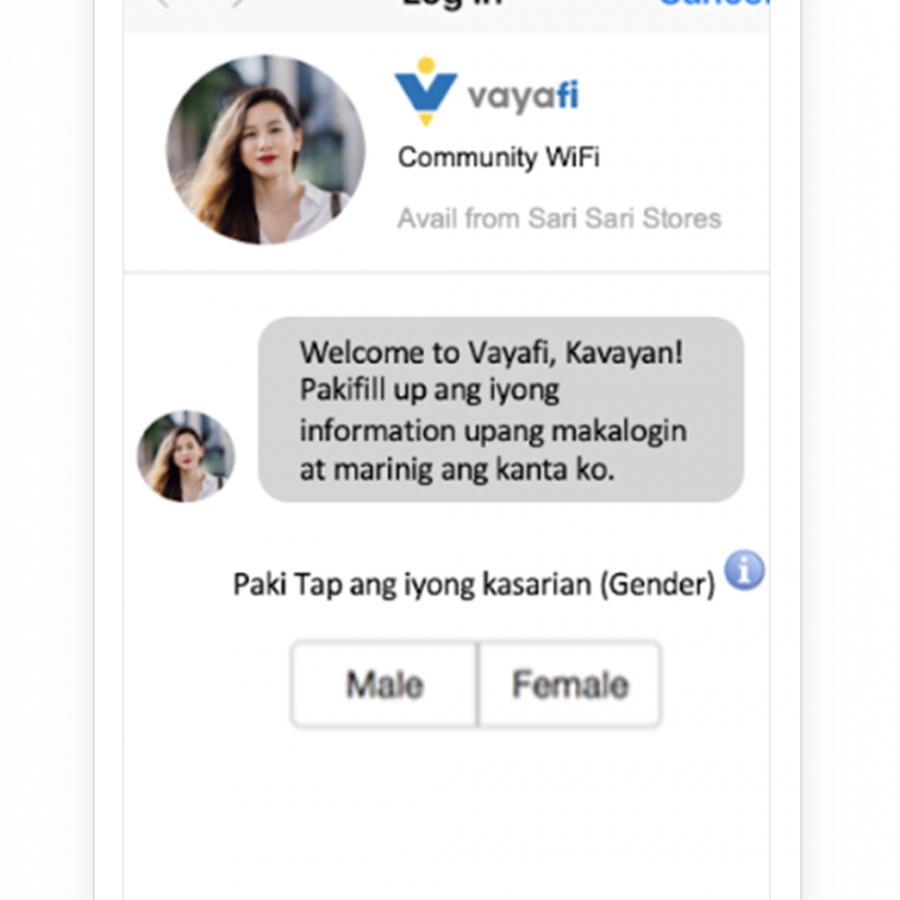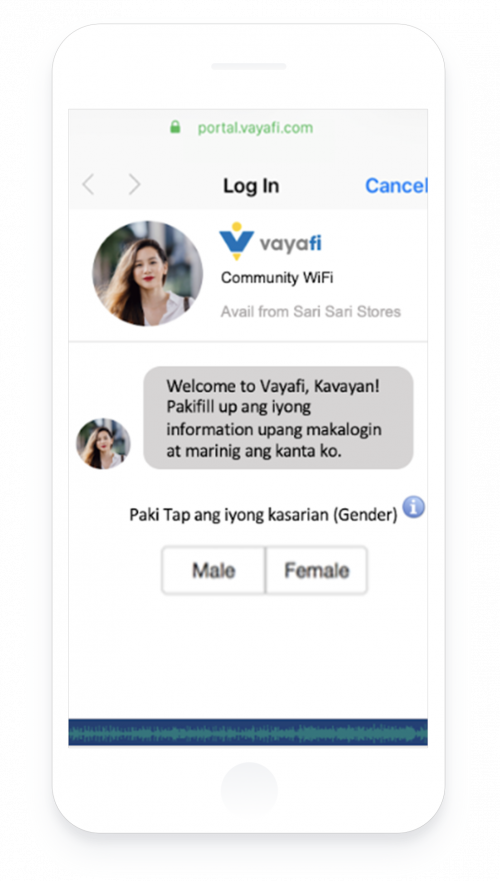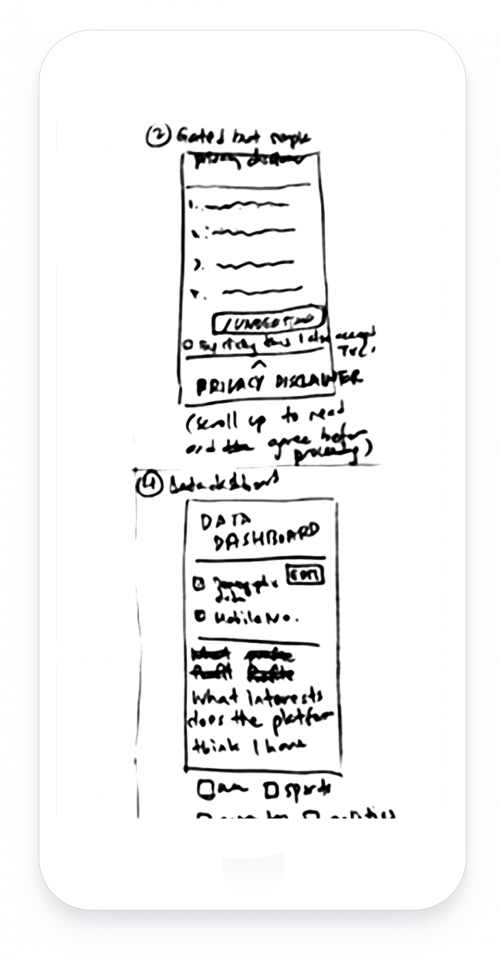How might we...
...show users how sharing their data will enrich their experience?
Social Light is a Filipino startup founded in 2013, that joined the TTC Design Jam for Notice and Consent in Singapore in mid-2020.
Social Light offers enterprise solutions that enable venues to monetize through various methods such as advertising, marketing, subscriptions, and data analytics. By creating solutions that keep adding value to businesses, they realized they could also provide free or subsidized internet access for low-income communities that couldn’t afford it. Therefore, their focus is to empower low-income communities through free internet connectivity to improve their quality of life and give inclusive access to information.

Their full digital marketing solution is called Vayafi - a WiFi monetization platform that enables low-income communities to access the internet and allows advertisers and venues to promote their brand to their target market, get quality leads, be able to see reports and analytics of their brand’s performance, and generate new revenues while driving customer engagement.

Social Light’s initial focus was to help users understand the value and purpose of the data they provide when registering to Social Light’s services, in particular when registering to Vayafi - a WiFi monetization platform that enables low-income communities to access the internet. Another aspect they wanted to consider in the design, was to find ways to structure data where they could easily build new business models. Ultimately the team decided to work on the first aspect.
How might we...
...show users how sharing their data will enrich their experience?
For the purpose of this Design Jam, Social Light chose to focus on its clients’ users - Filipino families in low-income communities. In this sense, they developed 4 personas from the family circle: Grandparents, fathers, mothers, and youth.
Lola: 65 years old. Retired. Even though she uses social media and digital communication services daily, she is completely unaware of data privacy.
Jong: 42 years old father in a manual labor job. He uses the internet for entertainment, communications, and social media. He normally shares all his data and fills forms completely as he is used to it when applying for jobs. He would share his data in exchange for free internet.
Maria: 31 years old housewife. She uses the internet for entertainment, communications, and social media. She usually connects to WiFi in public areas and would share her data as long as she is able to get free WiFi.
Juan: 18 years old student who uses the internet to play online games, work, or access his social media. He doesn’t care about sharing his details and ignores any privacy matters.
During the Design Jam, the team initially decided to focus on solving for younger people’s needs. Through conversations the team concluded that it was important to consider the needs of older generations as well, knowing that most of Social Light’s users, regardless of their age, share a common characteristic, which is having low data privacy knowledge and not completely trusting who they share their details with.
Moreover, the team discussed the value of explaining data privacy in a simple manner that people with low literacy levels could easily understand, without holding them back to what they wanted to do. So in the end, the challenge the team decided to work on was: “How can Social Light help educate users about data privacy and earn their trust?”.
During the prototype activity of the Design Jam, the team did two rounds of sketches. In the first round, the team brainstormed a way to improve the user’s registration process.
After choosing the best three concepts from the first round, the team had a second round to sketch a step by step of the winning concepts and talk about the pros and cons of each.
The data Social Light collects is given by users when registering to Vayafi. It allows Social Light to provide targeted advertising when users connect to WiFi. The data they use is:

Share it, sing it, learn it
Karaoke is a national pastime in the Philippines and the team found that music could encourage users to be more aware of the data they shared and see the value in it. In this sense, the design engages with the users by allowing them to share their data while listening to and singing the most popular songs in Filipino karaoke bars.
The way you know it
Filipino users are familiar with using Messenger when communicating through text with others. Therefore, in order to make the registration process easier to understand, the team decided to use a conversational user interface when registering to Vayafi.
Let’s do it again… and again!
Repetition has proven to be a good way to learn something new. So apart from allowing customers to learn more about the data they share at every step of the registration process, the concept also presents a government campaign video at the end of the registration, called the “Privacy, Safety, Security and Trust (PSST!) Online” or PSST!, which aims to increase data privacy awareness among Filipinos.
To be able to access the internet from a venue, users need to register to Vayafi. The registration happens through a conversational UI that guides them throughout the process.
At the beginning of the registration, users are told what their data is used for and what they will get for sharing it. At any point, they can also press the “i” icon to know more information about data privacy.
Users answer two questions - their gender and age range. While they answer the questions, they start to listen to a popular karaoke song targeted to them. They can also see the progress of the registration process on the bottom of the screen.
When answering the last question, they are asked to accept the Terms and Conditions and Privacy Policy. After accepting, they can then continue listening to and singing the song.
At the end of the registration process, users have the option to watch a government campaign video aiming to increase data privacy awareness.